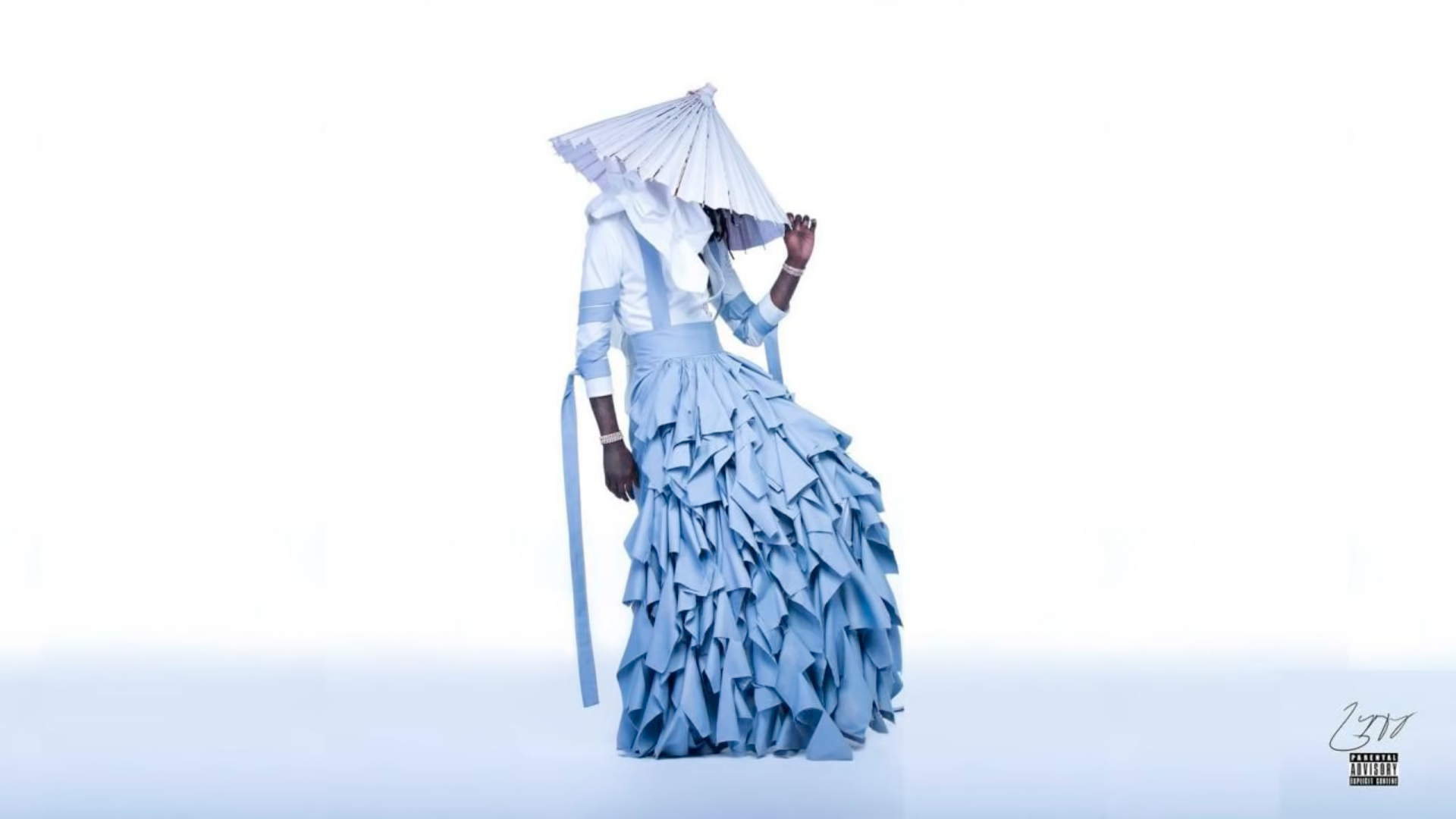Young Thug has a lot going for him. He’s easily the most commercially viable boundary-breaker in hip-hop, blending the popular with the alien in a seemingly effortless, often wordless brand of club-ready, forward-thinking trap music. It’s the kind of music that demands critical attention as much as it needs to be played at parties.
But while the Atlanta rapper’s latest and greatest release, JEFFERY, was another impressive slice of genre-bending modern rap, it wasn’t the music that grabbed immediate attention. It was the cover art, starring Young Thug in a long, flowing dress by Italian designer Alessandro Trincone.
It’s not the first time Thug has toyed with the idea of gender norms as an artist, or even the first time he’s made headlines for wearing a dress (in 2014, he rocked a leopard print dress made for a small child). But the JEFFERY cover appeared to be a sharper statement on Thugger’s thoughts on gender, clarified by his recent comments on the subject in a Calvin Klein advertisement.
“In my world of course it don’t matter. You could be a gangster with a dress or you could be a gangster with baggy pants,” Young Thug said in the ad. “I feel like there’s no such thing as gender.”
It might not be a bold stance in 2016, but for hip-hop, a genre with a long history of misogyny and hyper-masculinity, it was a fairly powerful statement. Thug — long considered an outsider by rap and social traditionalists — was calling for the elimination of the very constructs used to box him in throughout his career.
But as an album, JEFFERY certainly doesn’t break hip-hop’s decades-old heteronormative tradition. From the get-go, it’s clear that any envelopes being pushed here are strictly musical. The beats experiment with reggae and oddball trap, but lyrically, the songs fall squarely into standard rap music dick-measuring territory.
Thug snarls on “Floyd Mayweather”: “Little bitch, you ridin’ n****s’ dick like a bitch, damn,” a barb that uses femininity as a way to put down a faceless male enemy.
And when he isn’t pushing masculinity as a rap weapon, his lyrical hypersexuality stands out in stark contrast to the cover’s androgyny.
On “Future Swag,” Thugger chants “I fuck on your baby mama/ Let’s fuck on your baby mama,” and on “Harambe” he croons “I just wanna have sex/ I just wanna have a baby by you, girl,” with disturbing fervor.
But the most remarkable thing about the lyrics on JEFFERY is just how unremarkable they are. For the most part, they could come from the blinged-out mouths of any poppin’ Atlanta rappers — Future, Migos and Lil Yachty all have lines of similarly questionable content. But then again, none of them are being praised for breaking down gender barriers in hip-hop.
Not to say that Young Thug’s subscribing to standard rap fare takes away from the boldness of the JEFFERY cover or the political sharpness of his Calvin Klein statements, but it does call into question any attempt to brand him the savior of gender issues in rap. After all, Young Thug might be the only mainstream rap artist to experiment in gender ambiguity, but wearing a couple of dresses doesn’t do a whole lot if the message is missing in the music, no matter how brilliant that music may be.



